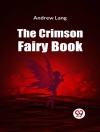In ‘Jude the Obscure, ‘ Thomas Hardy crafts a poignant exploration of societal constraints and personal aspirations through the life of Jude Fawley, a stonemason who yearns for a university education and greater social status. Written in Hardy’s distinctively naturalistic style, the novel delves into themes of class struggle, the limitations of education, and the complexities of human relationships. Set against the backdrop of Victorian England, the narrative intertwines tragedy with unflinching realism, illuminating the struggles of individuals caught between their dreams and the harsh realities of their environment. Hardy’s keen observations and rich character development position the text within the broader context of literary modernism, as it critiques prevailing norms and exposes the fragility of hope. Thomas Hardy (1840-1928), an acclaimed English novelist and poet, drew heavily from his own experiences growing up in rural Dorset, which influenced his insights into social inequality and human suffering. His earlier works had established him as a prominent voice in Victorian literature, but ‘Jude the Obscure, ‘ published in 1895, marked a departure from conventional narratives, confronting the era’s moral dilemmas and challenging the institution of marriage. Hardy’s personal struggles with the limits imposed by societal expectations informed the depth and sincerity of his characters’ plights. ‘Jude the Obscure’ stands as a powerful indictment of Victorian values and a call for empathy towards those marginalized by rigid social structures. Readers interested in the intersection of individual desires and societal pressures will find this novel to be both thought-provoking and relevant. Hardy’s masterful storytelling invites readers to reflect on the universal themes of ambition, love, and the relentless pursuit of happiness, making it an essential read in the British Classics Series.
A propos de l’auteur
Thomas Hardy (1840–1928) stands as a towering figure in English literature, renowned for his poignant portrayals of rural society and the inexorable forces of fate. An architect by training, Hardy shifted his career to writing, imbuing his novels with a profound sense of place and a deep sympathy for the struggles of the human condition. ‘Jude the Obscure’, a novel from the British Classics Series, is emblematic of Hardy’s mature work, characterized by its tragic narrative and contemplation of societal constraints. The book, which follows the life of Jude Fawley, was met with controversy for its candid treatment of marriage and the class system, contributing to Hardy’s decision to cease writing novels after its publication. His writing style, marked by a naturalist perspective and a rustic realism, emerges from a juxtaposition of individual desires against an immutable societal backdrop. This thematic duality threads through much of Hardy’s oeuvre, making works like ‘Tess of the d’Urbervilles’, ‘The Mayor of Casterbridge’, and ‘Far from the Madding Crowd’ perennial subjects of literary study. Hardy’s contribution to literature was not confined to his novels; he was also a poet of considerable merit, with volumes such as ‘Wessex Poems’ reflecting a similar thematic complexity. Recognized posthumously for the depth and durability of his work, Hardy’s novels continue to be critical and cultural touchstones for readers around the world.












